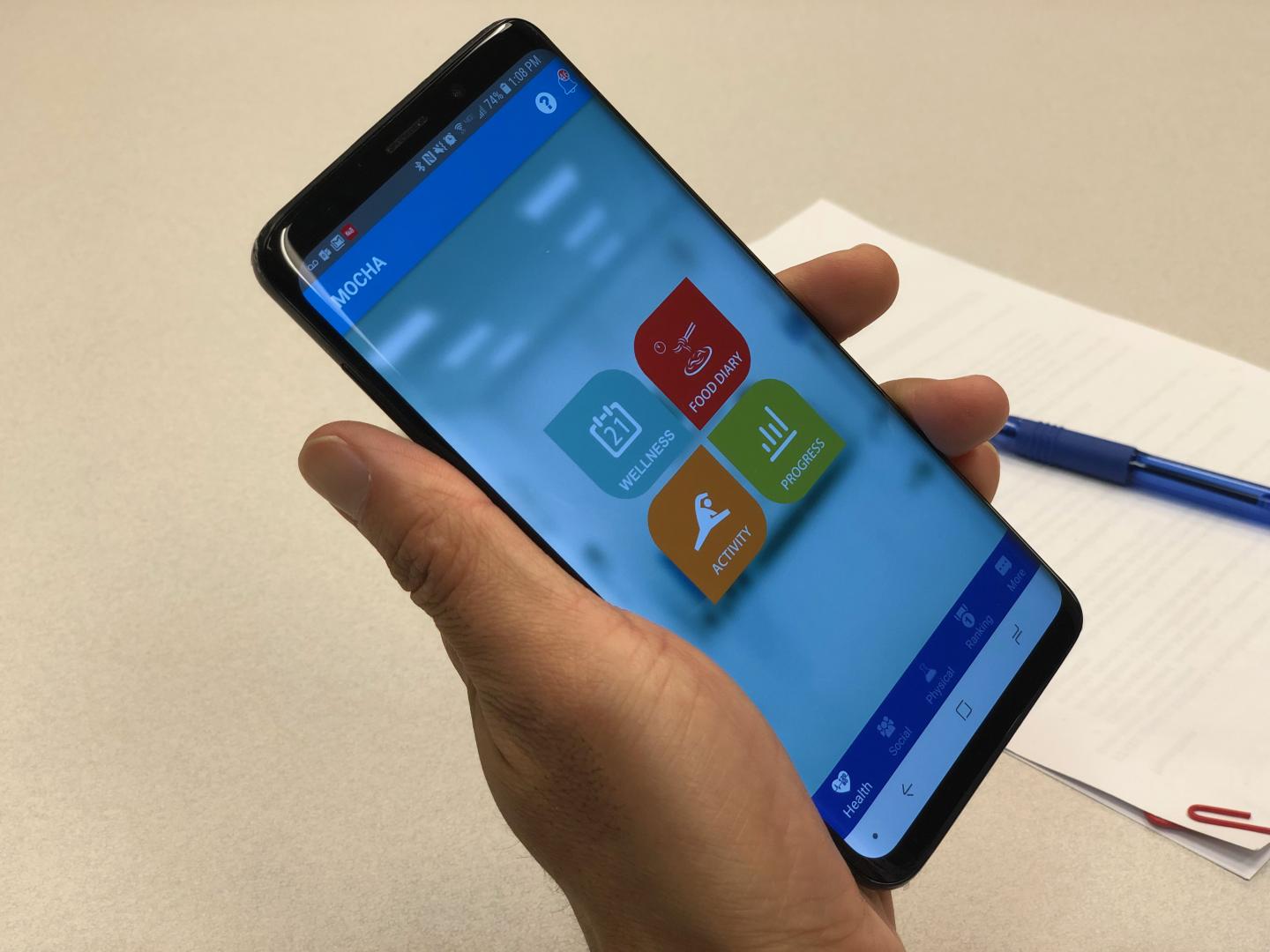Study patients achieved goals with real-time access to dietitians and physicians

Credit: Houston Methodist
Breast cancer survivors who used a smartphone app created at Houston Methodist consistently lost weight, largely due to daily, real-time interactions with their health care team via the mobile app. Few clinically-tested mobile apps exist today with clear measurable goals to support continued care of cancer survivors and patients.
There is increasing evidence that reducing obesity also reduces the risk of cancer recurrence and the frequency of hospital readmission. A meta-analysis of 82 studies evaluating the relationship between body weight and breast cancer in more than 213,000 women found a 35 percent increase in breast cancer mortality.
A Nov. 30 paper in JCO Clinical Cancer Informatics focused on the benefits of using the Methodist Hospital Cancer Health Application specifically designed for breast cancer survivors to interact with their clinical dietitian and reinforce healthier lifestyle choices, especially between appointments.
Of the 33 breast cancer survivors enrolled, 25 women actively used the app over a four-week period. During this pilot study, 56 percent of enrolled patients lost an average of 3.5 pounds. Also, the more the study participants used the app, the more likely they were to lose weight.
“Some breast cancer medications slow down metabolism, but one of the biggest hurdles for a survivor is finding the support needed to maintain a healthy lifestyle,” said Tejal A. Patel, M.D., co-senior author and breast medical oncologist at Houston Methodist Cancer Center. “We tell our patients that losing weight reduces the risk of cancer recurrence, but don’t usually provide them with structured tools to achieve and maintain this weight loss. The mobile application provides a link to the physician’s office so that real-time changes can be made.”
Unlike popular consumer health apps, the Houston Methodist app incorporated a clinical dietitian who actively communicated with patients and provided direct feedback and guidance. For example, if a breast cancer survivor logged her daily meals, the nutritionist reviewed it and made comments and suggestions in real time.
Studies show that fewer than 35 percent of all breast cancer survivors follow recommended levels of physical activity. Stephen T.C. Wong, Ph.D., P.E., chair and professor of the Department of Systems Medicine and Bioengineering at Houston Methodist Research Institute, and his informatics development team helped create the mobile application as a way for Houston Methodist health care providers to actively support their patients after treatment and to provide continued care beyond hospital walls.
“We are a mobile society, so digital innovations like smartphone health care apps must be made in a way that empower our patients and deliver patient-centric care,” said Wong, co-senior author on the paper. “More than 90 percent of the study patients found our app easy to navigate, and they wanted to use it daily for real-time feedback and support. The app helped breast cancer patients change daily behaviors and successfully meet their personal goals.”
Houston Methodist dietician Renee Stubbins said the mobile health app allowed her to interact with more patients in one day than she normally would in person, something she believes can be adapted by other registered dietitians and health care providers. Not only did she provide recommendations for diet and exercise, but she also motivated the study participants to provide virtual support to each other.
“Maintaining a healthy weight is difficult enough for the average person, let alone for those who’ve survived breast cancer, so being able to empower and support these women made a difference,” said Stubbins, one of the paper’s co-first authors.
The app is currently accessible to study patients, but the goal is to widely offer this mobile application on the App Store and Google Play. Houston Methodist will broaden the use of this app in multi-center studies and focus on long-term behavioral changes to reduce health issues most common in cancer survivors. One study will include active breast cancer patients undergoing chemotherapy or other treatment. A second study will include all cancer survivors and monitor exercise, wellness and diet over a 12-week period.
###
JCO CCI is a journal of the American Society of Clinical Oncology. The research was supported in part by the Ting Tsung and Wei Fong Chao Foundation and the John S. Dunn Research Foundation.
For more information about Houston Methodist, visit houstonmethodist.org. Follow us on Twitter and Facebook.
For more information: A behavior-modification, clinical grade mobile application to improve breast cancer survivors’ accountability and health outcomes. JCO CCI DOI: 10.1200/CCI.18.00054. (Online Nov. 30, 2018). R. Stubbins, T. He, X. Yu, M. Puppala, C. Ezeana, S. Chen, M. Alvarado, J. Ensor, A. Rodriguez, P. Niravath, J.C. Chang, T. Patel, S.T.C. Wong.
Media Contact
Gale Smith
[email protected]
281-627-0439
Related Journal Article
http://dx.





